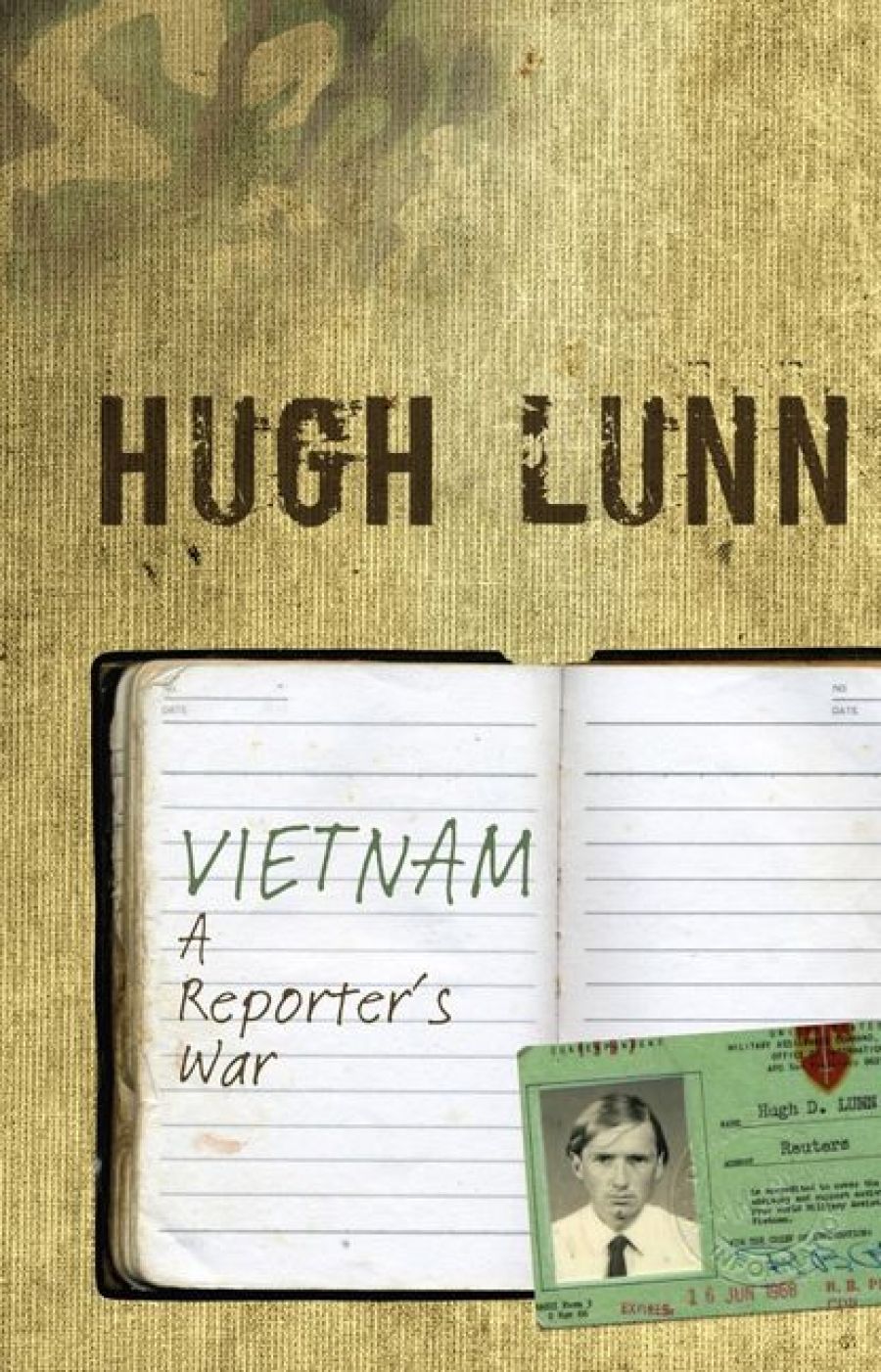
- Free Article: No
- Contents Category: War
- Review Article: Yes
- Article Title: The Battle for News
- Article Subtitle: Fine and brave reporting
- Online Only: No
- Custom Highlight Text:
It may still be useful to begin by describing what Hugh Lunn’s book does not set out to do, then there can be no misunderstandings as to whether or not he has achieved his objectives.
The book is not an account of the Vietnam War in the sense that it at any time attempts to explain who is fighting whom, for what reasons and by whatever tactics and strategies. You will learn next to nothing from Lunn about the causes of the war, the reasons for American and Australian involvement or anything else of a significant political, historical or military nature.
- Book 1 Title: Vietnam: A Reporter’s War
- Book 1 Biblio: University of Queensland Press, $19.95
- Book 1 Cover Small (400 x 600):

- Book 1 Cover (800 x 1200):

No, what Hugh Lunn has set out to do, and to my mind, has done superlatively well, is to record the day-by-day routines of a war correspondent whose main concerns are to stay alive and get to a telephone that works.
Hugh Lunn, thankfully, has no Rambo-esque pretensions. He is .as frightened as most of us would be by booby traps going off, mortars falling around him, and machine gun fire cutting up the dirt, and the troops within vomiting distance. His is a measure of his courage that frightened though he was most of the time, he still kept on doing his job - an impossible job which was to try to tell the truth about what he saw happening in Vietnam, in spite of the almost total manipulation of news by the U.S. military command.
There are many unforgettable moments of foolhardy bravery in this book. I shall forever retain the image of Lunn walking through the deserted streets of Saigon during the Tet offensive, hands in the air to show that he was both unarmed and carried a press pass, as he tried to get to the Reuter’s office to send off his report. Lesser men, and certainly lesser war correspondents, would have found a fox hole and stayed there and to hell with the news.
For me, and I suspect for Lunn, his British and Australian colleagues and in particular his Vietnamese assistant, Dinh, the most moving moment in the·book is the cable from London:
1726: LD25 AITN SINGAPORE ONPASS SAIGON 41646 Prohan please convey to all members of Reuter team in Saigon the congratulations of the Directors of Reuters on their magnificent performance during past few weeks. You have lived up to the finest traditions of our agency.
BURGESS, CHAIRMAN, OS -
REUTER LONDON.
I don’t mind admitting that the message brought tears to my eyes because it celebrates the invariably unsung heroism of so many war correspondents. And for me it sums up what this book is all about – a very conscientious reporter determined to do a good job in spite of every conceivable danger and difficulty. I find that kind dedication inspiring and moving.
Lunn survived the Vietnam war. Many of his journalist colleagues did not. His book is a tribute to all of them for it presents in memorable detail exactly what it is like to be a noncombatant reporter in a war zone. More than that; it provides major insights into how news is manipulated and twisted to suit governments and editorial policies.
Vietnam: A Reporter’s War should be a set book on every journalism and senior school media course in Australia: Written in Lunn’s typical laconic and laid back style, it is very easy to read - perhaps too easy as one gets to the end much too soon. But for all the facility of his prose, there is nothing facile about his observations of a reporter’s war.
This. is an important book. It may well become a classic of its kind.


Comments powered by CComment